
Publisher:
Bonnie King
CONTACT:
Newsroom@Salem-news.com
Advertising:
Adsales@Salem-news.com

~Truth~
~Justice~
~Peace~
TJP
Oct-27-2021 17:39

 TweetFollow @OregonNews
TweetFollow @OregonNews
You Can Never Go Home Again: The Limits of COP26
Robert Lundahl special to Salem-News.com"People have to change from within." ~Dr. Jane Goodall
 Jesus and Alfredo Figueroa. (Chemehuevi, Yaqui) Photo by Robert Lundahl |
(LOS ANGELES, Calif.) - There's an old adage, adopted from the title of a 1940 Thomas Wolfe novel, that states, “You can never go home again.” The saying is meant to infer how nostalgia causes us to view the past in an overly-positive light, and how humans tend to remember people and places from our upbringing in static terms.
Perhaps having ambitiously taken on a project far beyond my scope, I was looking toward a larger demographic for redemption through filmmaking. I needed an audience.
Instead, the home I found was not the shaded streets of my boyhood in old Pasadena, where I was raised and where the film begins, nor the applause I might receive from others, but the home in my heart I found through "trial by fire."
The saga started out after completing a film for A&E on military base conversion in California, which included deadly and awful revelations for those Marine veterans involved. THAT is a story for later.
I had always wanted to be a documentary filmmaker. Be careful what you wish for.
Having become somewhat inured to my own status as an investigative journalist and still having a few years ahead of me to accumulate more "battle scars," through an introduction I met 4 generous and lovely men, and their families, who are regarded as the most distinguished activists in the large, unruly, mass environs of Southern California.
Gone was the supportive and loving community of Filmmakers in the Bay Area, where I had made my career. Gone was soft touch of Puget Sound where I had made previous films with Indian people.
"Jesus" had gone to the desert and it was hotter than hell.
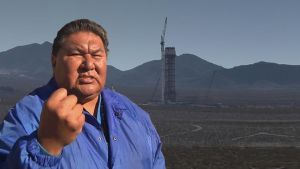 Reverend Ron Van Fleet (Mojave, Apache) |
Here I was meeting right wing propagandists turned renegades who asked me in all seriousness, "Did you get a bullet in your mailbox, yet?"
These individuals were convinced the world could not do without fossil fuels for economic reasons and reasons of societal stability, and that my generation had been wrong in advocating distributed energy applications like rooftop solar.
Let's start at the beginning.
I had a friend, who was well known to the state energy industry and to policy makers in Sacramento, the state Capital. There was a plan afoot, by international firms, from Germany, Ireland, Spain and elsewhere around the world, to build out the Mojave Desert with large solar and wind, through 250 proposed projects, each sold on a PowerPoint for billions, aided by and benefiting Wall Street investors.
This is in the film. I don't have to name names here.
The California Large Solar Power Tower energy visionaries I came into contact with wanted to see a "handful" of successful projects as a bridge to more distributed renewables, like rooftop solar, which is more democratic, and cheaper, and which is non–destructive to ecosystems, recreation and tourism industries, and to the heritage and cultural resources of Native people.
I was proud and relieved when the very inventor of the Power Tower concept, Dr. Allan Hoffman, Physicist, weighed in with entirely reasonable human rights questions and concerns in support of the film (see link above).
Cultural resources are plentiful and astounding in the area including large geoglyphs, popularized by author Erich Von Daniken in his seminal book, "Chariots of the Gods", I had read this in high school. It was about the time I had read Carlos Casaneda's The Teachings of Don Juan: A Yaqui Way of Knowledge.
It was the 70's. It was wild and weird. There's no question we were out there looking for alternatives. But that phase yielded to my rational scientific mindedness via a career in Silicon Valley providing communications tools and strategies for Fortune 100 companies, working in 23 countries, for better or for worse.
These were the trappings of an normal consumer driven life until there was this: "Six Utility Scale Desert Solar Projects Get Holiday Surprise". I had been asked to help write a lawsuit on behalf of my Native friends and plaintiffs to stop the development of 5 energy facilities, valued at around 10 billion dollars, and sold to the people of California as "Green," later requiring supplementation by natural gas to meet their contracts.
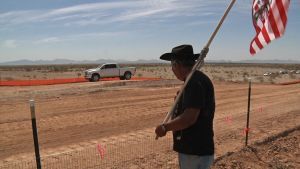 Philip Smith (Chemehuevi) protests construction. |
In effect, this made them fossil fuel plants, becoming the very thing they were proposed to be the alternative to–in the name of reducing the release of carbon to the atmosphere, which would further contribute to the Climate Crisis we have today.
Because of the amount of money on the table, it had been proposed that I apply for "whistle blower" status, by the non profit on whose behalf I helped write the legal complaint. I declined however, indicating my profession was Public Relations, not activism.
I agreed to practice my profession on behalf of my client, the non-profit, and others.
It is here we reflect on COP26, and the limitations of that process in light of leaked documents by the investigative arm of Greenpeace, Unearthed.
This is described in a recent Guardian article published only days ago.
With regard to my film and the experience making it, multiple short videos and articles were created for release to the press, later becoming the film itself, "Who Are My People?", screened in 5 states and receiving press from 150 outlets in many countries around the world through the Associated Press (AP).
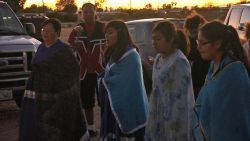 Bird Singers (Mojave) |
Entrenched interests were present as described in the Guardian/Unearthed leak, decrying the push to renewables in general, and hoping for their failure. Whether there were direct investments by the oil, coal, and gas industries, or not, as occurred to subvert solar development in the 1980's and bring it into the tow of Arco and other oil industry forces (like Arco Solar), I don't know. Perhaps there don't need to be for the result to be the same.
As David Lamfrom of the National Parks Conservation Association disclosed, "This would be a lot easier for you if you didn't have every environmentalist and environmental organization against you." He thought I was "toast," but I was right, and the nay-sayers were wrong.
David was warning me that the perception "Solar is good" prevailed despite the unholy circumstances of its implementation in the Mojave.
The alternative, rooftop solar, as proved successful in Germany, was a bit beyond the normal expectations–as per Rogers Innovation Curve discussed in an earlier post. It was also unacceptable to the oil, coal, gas, and aluminum industries by default.
Many contributors to mainstream environmental organizations do so on the basis of what they think they already know, and this group of my friends and peers is not, according to Rogers Curve, necessarily comprised of "Innovators," or even "Early Adopters" as one might assume.
There is also a reference here to be introduced in relation to the Nuremberg Trials, where arguments of "I was only doing my job," failed, in light of the imperative of accountability following World War II.
Also we can reference Hannah Arendt's "Banality of Evil," which postulates that evil does not raise its hand and say "I'm here," rather it is the consequence of everyday decisions people make to keep their jobs, follow orders, and conform to the cultural expectations, at the time and place.
 Chemehuevi Tribal Chairman Charles |
In it, the filmmakers criticize green subsidies as having a detrimental impact on the environment, though being generally supported by mainstream environmental groups. (See vicious criticisms online).
- Wikipedia: "Upon its release, Planet of the Humans generated intense controversy. It was criticized by some climate scientists, environmentalists and renewable energy proponents as misleading and outdated. It was removed from YouTube on May 25, 2020 in response to a claim of copyright infringement, which PEN America condemned as censorship. The filmmakers challenged the claim, arguing that the fragment was used under fair use and that free speech was subverted.
"Twelve days later, YouTube allowed the film to be viewed again. In November 2020, Moore removed it from YouTube where it was available for free and made it available on Amazon, Apple and Google's rental channels. As of May 2021, the original YouTube post from April 2020 was available again for free."
The recent Guardian article, "Australia sought to weaken UN climate report on need to close coal-fired power stations, leak," suggests the same mechanism may be at play in today's world in advance of COP26 in Glasgow next month.
- Emissions reduction minister Angus Taylor says commenting on draft IPCC report doesn’t equate to running interference, as Greenpeace claims.
On top of this kind of controversy, I had "Stepped off the back of Joseph Conrad's boat" as colleague John Boyd (Elwha Klallam) noted encouragingly.
What he referred to is the antidote to colonial/settler inspired writers like Conrad, actually liberal for his time (adding a bit of complexity about what is acceptable, when), writers who speak and write from a "Western Authoritative Model."
John, an Indigenous writer and teacher, M.A., University of Oregon (my alma mater), having studied with Dr. Robert Proudfoot, later teaching at Bowling Green State University became co-writer and associate producer.
He had participated with his community, and with me in the making of my second film, "Song on the Water" (PBS). John had encouraged me to take a more authentic and subjective approach, as first person narrator.
Let's dig deeper into the coal controversy impacting COP26 and our global efforts to mitigate the Climate Crisis:
- Australia pushed back against a finding in a major climate report that fossil fuel power stations be urgently phased out, and requested the country be removed from a list of the world’s leading producers and consumers of coal, Greenpeace has said citing leaked documents.
Australia was among a handful of major fossil fuel exporting nations that sought to weaken the conclusions of the report, Greenpeace’s investigative arm, Unearthed, said on Thursday.
It released a report based on leaked documents related to the Working Group III paper on solutions to the climate crisis being prepared by the UN’s Intergovernmental Panel on Climate Change.
From a socio-political perspective, in the eyes of many, I became a bete noire, a target, the "Front Man," along with Michael Moore in 2020, for a series of ideas unpopular to certain industry sectors.
I had underestimated the importance of this, but in some ways had played up to it as well (Hippies Turned Yuppies Turned Billionaires) with an outrageous video challenge for and about my former clients at Google, and Kleiner, Perkins, Caulfield and Byers.
- Guardian Australia has not seen the leaked documents. Greenpeace said, only excerpts were being released due to “a justified concern in the scientific community about the publication of leaked reports from the IPCC before the scientific process for reaching their conclusions is complete”. The Working Group III report will not be finished until March 2022.
Thoughtfully Google engineers later recanted their foray into energy development, admitting they were out of their league in 2015. I like to think as well it was the result of our blistering Twitter campaign.
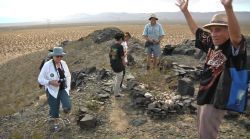 Don Alfredo Figueroa (Chemehuevi, Yaqui), |
My struggle was the struggle for the people in the film, indigenous leaders and elders, primarily, to hang on to their culture, which would be so efficiently throttled by a new kind of extractive industry–sacrificing land conservation for the sake of an industry advertised as cleaner and greener, that wasn't and isn't.
Was this dangerous greenwash akin to what the Greenpeace claims suggest?
- Australia, which is the world’s largest coal exporter and second-largest gas exporter, features prominently in the Unearthed report as rejecting the IPCC’s analysis that fossil fuels urgently need to be phased out of the world’s energy systems.
The draft IPCC report states coal- and gas-fired power stations need to be phased out and replaced by low- or zero-carbon electricity sources, according to Unearthed. Longer term, technologies such as hydrogen fuels or the capture and storage of carbon emissions from power plants should be tested and improved.
Phasing out fossil fuel power in the near term, the IPCC states, should be “accompanied by efforts to improve and test out options that will be important later on, including hydrogen or biofuels in cars and trucks, and fossil power plants, bioenergy power plants or refineries with CCUS [carbon capture utilization and storage].”
It was during this period of filmmaking, by chance. I met Dr. Walter Munk, preeminent oceanographer, (The Einstein of the Oceans) who dedicated his life to the health of the environment around us and preserving and protecting it through science and discovery.
- Australia, however, rejected this analysis, suggesting in comments to the draft that carbon capture could be deployed in the near term to avoid phasing out coal and gas power, Unearthed claims.
The report cites a senior official at Australia’s Department of Industry, Science, Energy and Resources as saying: “These remarks confuse the objective (eliminating emissions) with the means ‘retiring existing coal-fired power’. CCUS remains relevant to zero emissions”
In a separate intervention, the Australian official suggested the country be deleted from a list of the world’s major producers and consumers of coal – despite Australia being the fifth-largest coal producer in the world between 2018 and 2021 – because the nation does not consume as much coal as other countries, Unearthed says.
Here we find a "duck and cover" argument that to my mind, as an expert in what corporations and governments say and do, seems after the fact.
If the Greenpeace report is true, the response to it is to say "move along, nothing to see here." As an analogous situation I might point out Facebook's potential effort, as reported, to "rebrand itself," after sustaining withering criticism before a Senate Committee, focusing on the "Metaverse," something that does not yet exist, which is not likely easily made equitable in terms of access to WiFi, cost, ability to pay, and education (See Digital Divide).
Commonly, strategies like this are used to "drive the market" and split the community of critics and dissatisfied customers through obfuscation and distraction.
In 2021 this short film titled, "I Met Dr. Munk," was awarded Best Short Film in the Tulalip Tribes Hibulb Cultural Center Film Festival, for me–uniting North and South, films and people, tribal and non-tribal, in a healing process which culminated in a compelling collaborative webinar, hosted by City University of New York, Hunter College and Pratt Institute (Enrique Lanz Oca, Ph.D.).
In it, Munk estimates sea level rise from melting Greenland glaciers and West Antarctic ice shelves. These estimates from "The Einstein of the Oceans" are truly shocking.
It is no surprise the oil, coal, and gas industries in Australia and elsewhere would have motivation to blur the Greenpeace/Unearthed investigation.
In the video, Munk is quoted as saying, Greenland glaciers melting would contribute to sea level rise of nine meters, and that "the total sea level rise associated with Antarctica is 100 meters," (300 plus ft.).
If that's not bad enough, Munk relates:
- "I don't think that nasty surprises are totally impossible."
Going home wasn't what I thought it would be. I had stood up for my film in the face of treacherous difficulties, doing so to promote climate awareness and responsibility.
And I had met Dr. Walter Munk. We discussed the imperative of attempting to mitigate the impacts of the climate crisis to people, over our dinner together at Scripps institution of Oceanography,
Sometimes as a writer, creator, artist or filmmaker, you put it together later as time passes and you go along. The Guardian article published last week demonstrates everyone may not be on board, and COP26 may be facing severe political limitations despite the compelling facts portrayed by Dr. Munk.
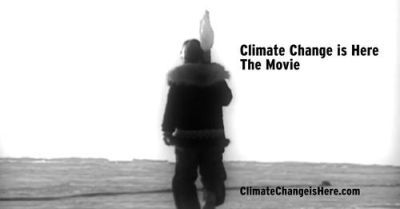 Who Are My People? That's easy.
Who Are My People? That's easy.
It's you reading this article, you who care about the environment and the health of our planet and ourselves. My work focuses on the people whose traditional ways most directly depend on it. But really, there is no distinguishing between us any more.
Who Are My People? cleared the path for "Climate Change is Here: The Movie," completed just recently.
It's about the impacts of climate change specifically on indigenous villages and populations, here and in Alaska. This film also received an award; it earned an honor for Best Short Feature.
As Jane Goodall is recently quoted as saying in The Guardian (Jane Goodall on fires, floods, frugality and the good fight): "People have to change from within."
I hope films like "Who Are My People?" provide educational opportunities and the inspiration to help us collectively do just that.
Articles for October 26, 2021 | Articles for October 27, 2021 |
Salem-News.com:
googlec507860f6901db00.html


Quick Links
DINING
Willamette UniversityGoudy Commons Cafe
Dine on the Queen
Willamette Queen Sternwheeler
MUST SEE SALEM
Oregon Capitol ToursCapitol History Gateway
Willamette River Ride
Willamette Queen Sternwheeler
Historic Home Tours:
Deepwood Museum
The Bush House
Gaiety Hollow Garden
AUCTIONS - APPRAISALS
Auction Masters & AppraisalsCONSTRUCTION SERVICES
Roofing and ContractingSheridan, Ore.
ONLINE SHOPPING
Special Occasion DressesAdvertise with Salem-News
Contact:AdSales@Salem-News.com

Terms of Service | Privacy Policy
All comments and messages are approved by people and self promotional links or unacceptable comments are denied.
[Return to Top]
©2026 Salem-News.com. All opinions expressed in this article are those of the author and do not necessarily reflect those of Salem-News.com.